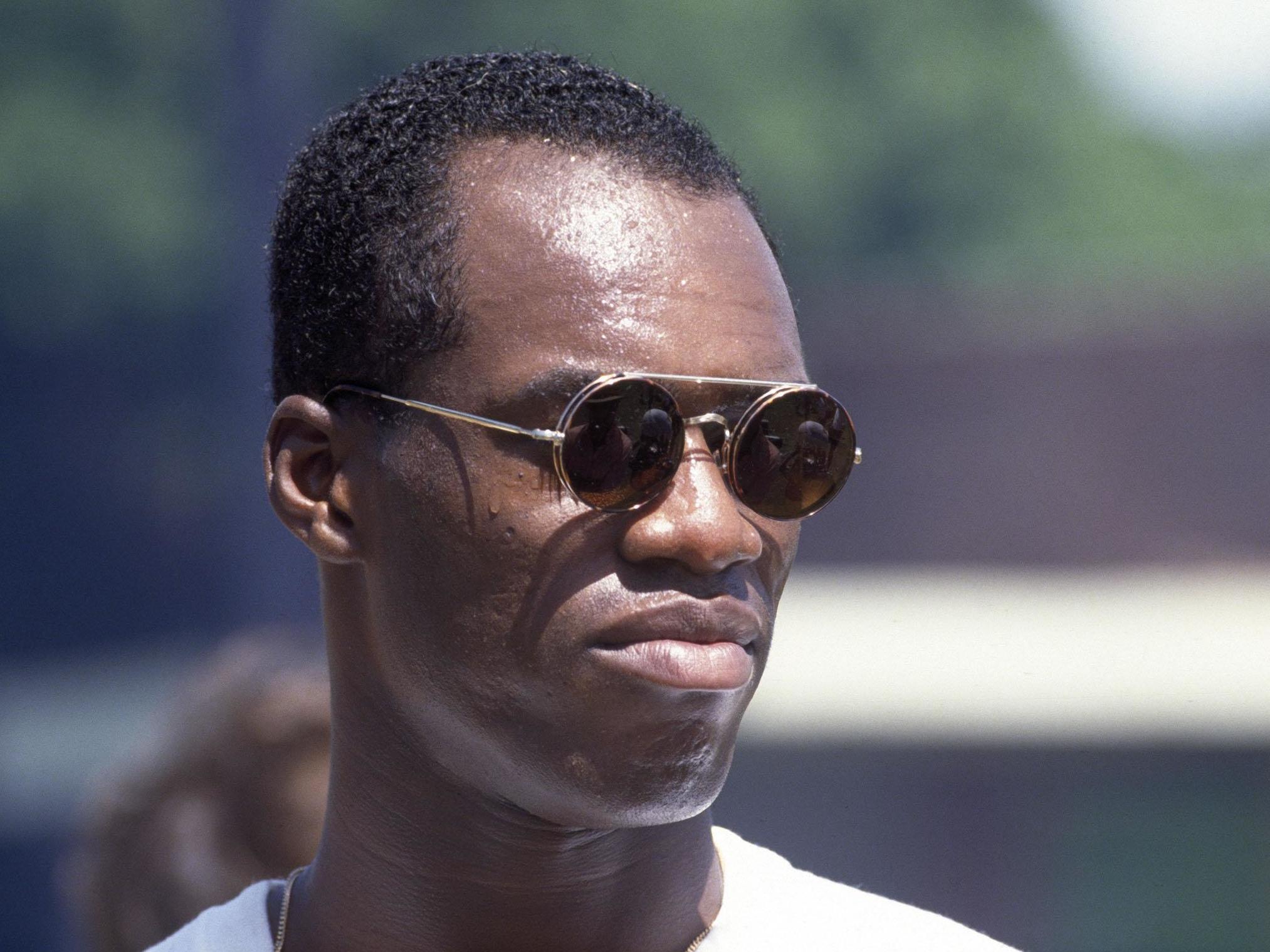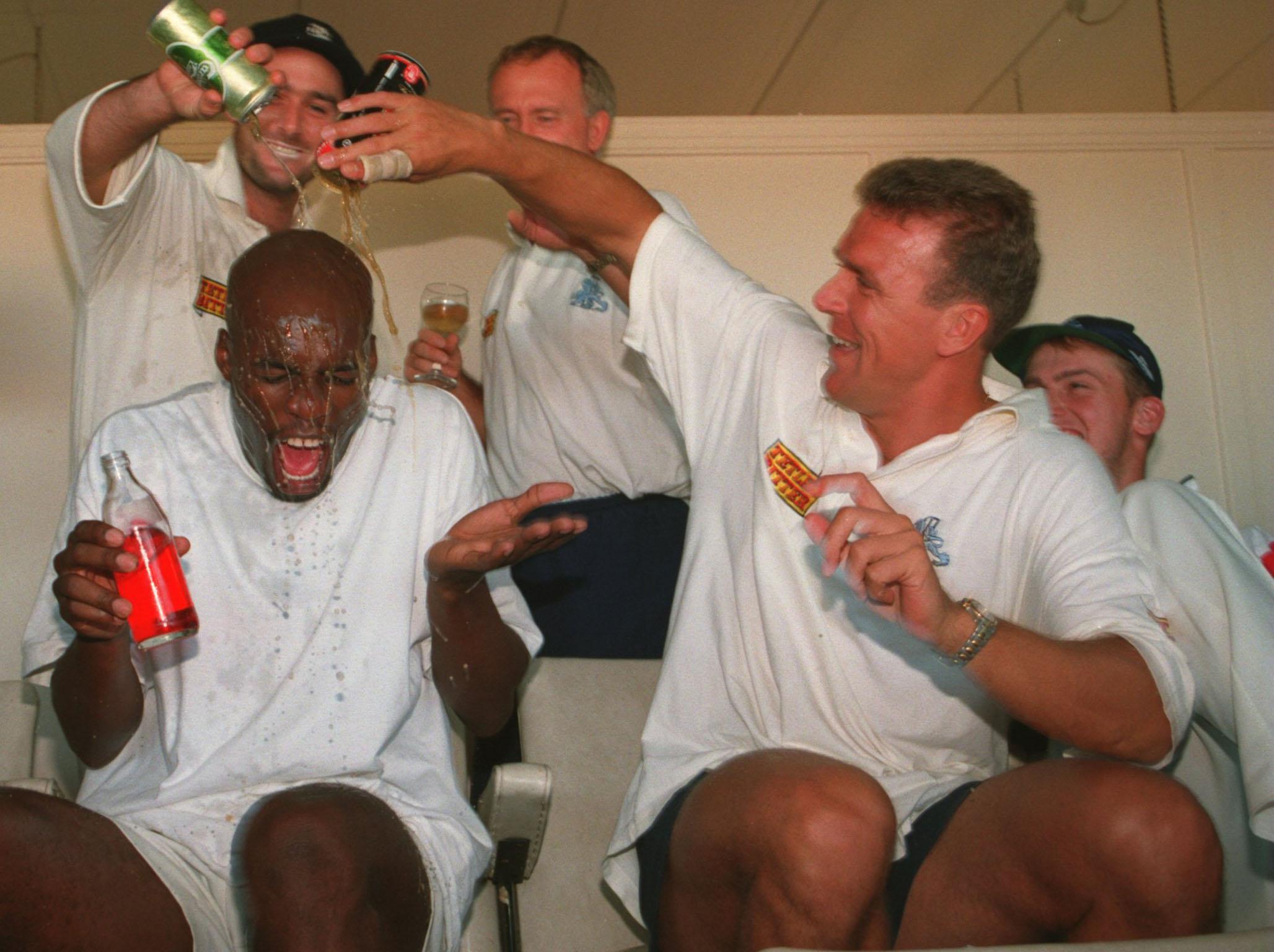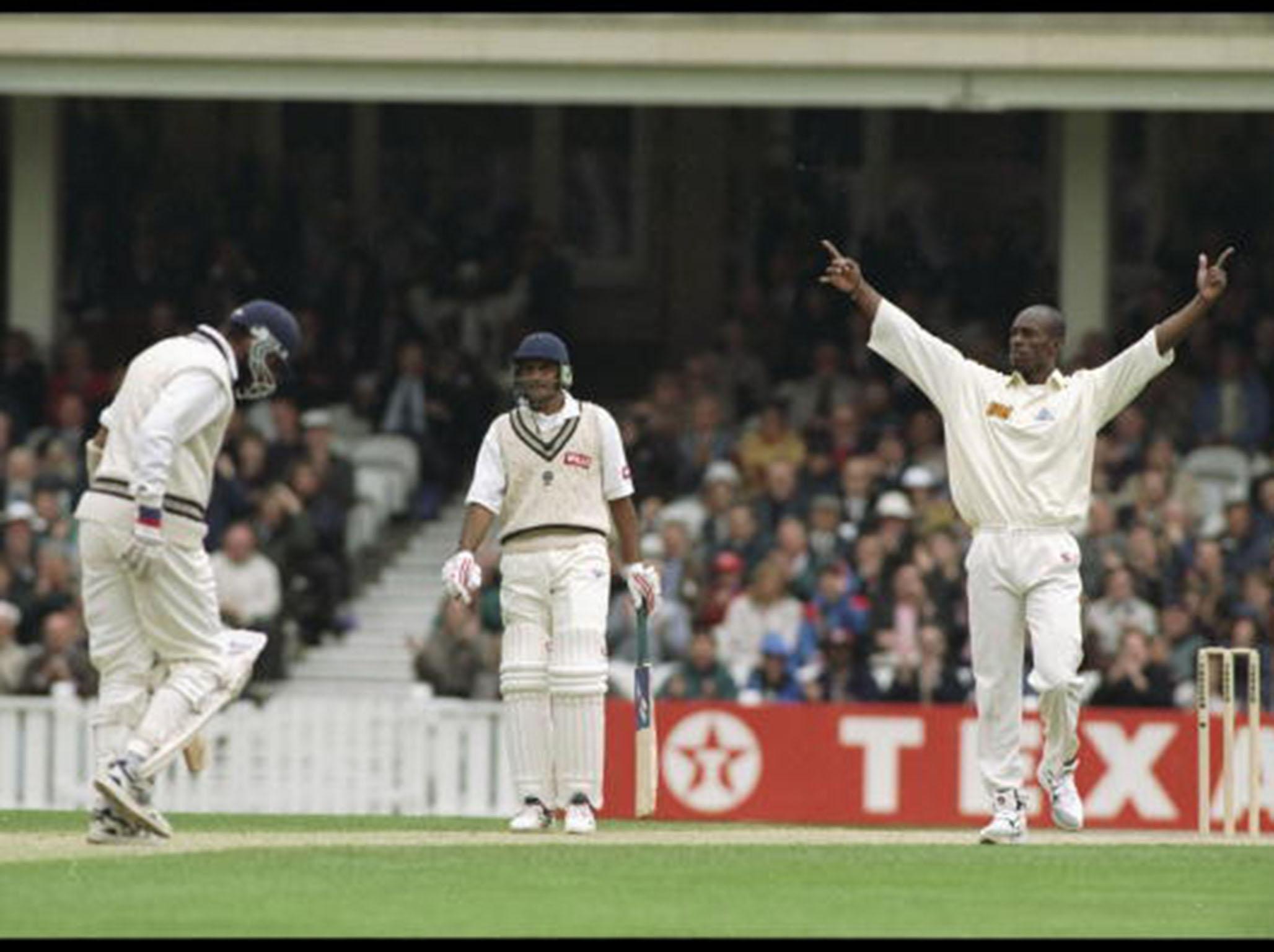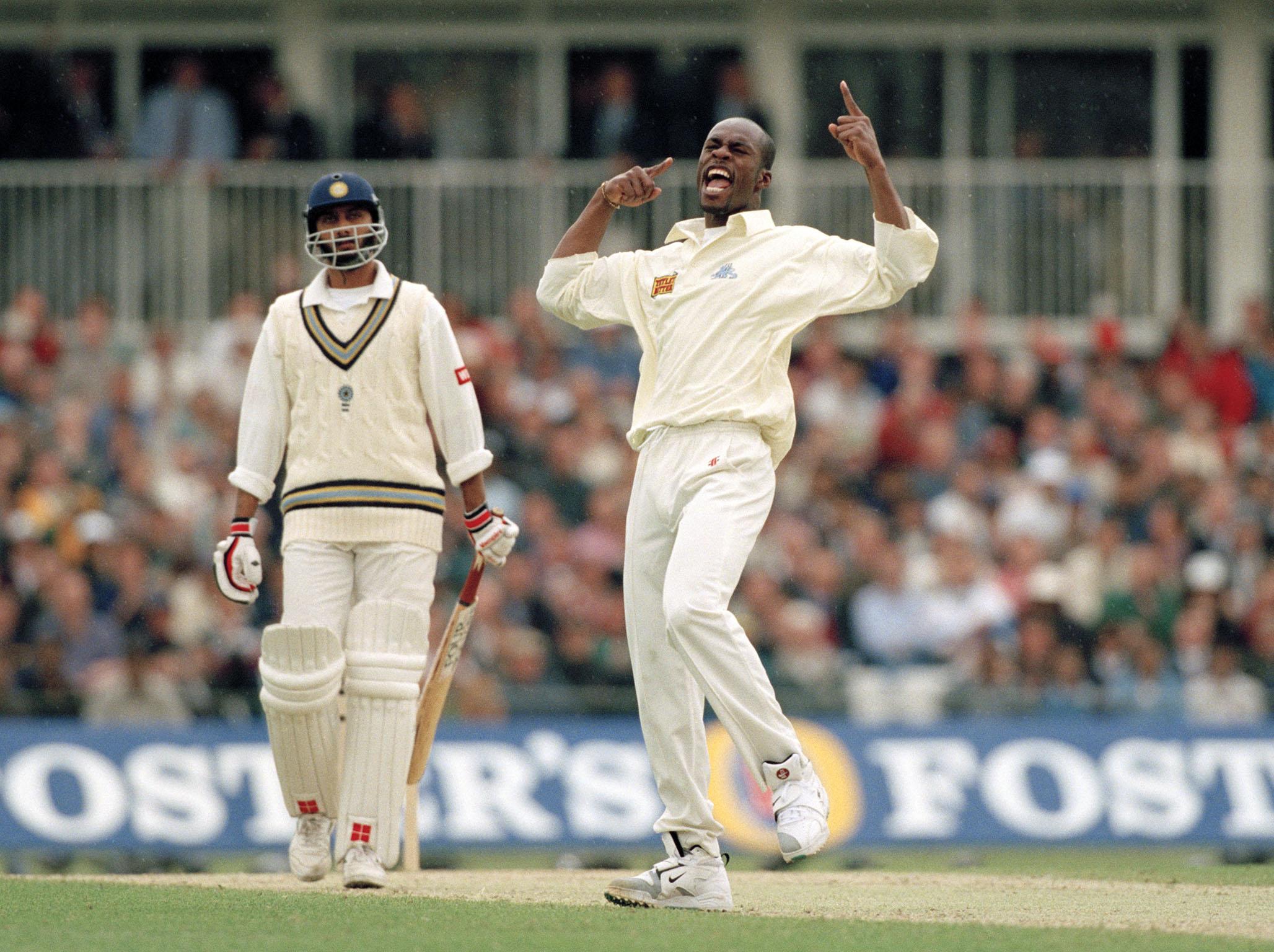Chris Lewis interview: ‘Did other cricketers keep in touch after I was sent to prison? The simple answer is no’
Exclusive interview: A decade after his last Test match, Chris Lewis attempted to smuggle £140,000 worth of cocaine through Gatwick airport, and was sentenced to 13 years in prison

Your support helps us to tell the story
From reproductive rights to climate change to Big Tech, The Independent is on the ground when the story is developing. Whether it's investigating the financials of Elon Musk's pro-Trump PAC or producing our latest documentary, 'The A Word', which shines a light on the American women fighting for reproductive rights, we know how important it is to parse out the facts from the messaging.
At such a critical moment in US history, we need reporters on the ground. Your donation allows us to keep sending journalists to speak to both sides of the story.
The Independent is trusted by Americans across the entire political spectrum. And unlike many other quality news outlets, we choose not to lock Americans out of our reporting and analysis with paywalls. We believe quality journalism should be available to everyone, paid for by those who can afford it.
Your support makes all the difference.“I was part of one game of cricket – it happened in a gym but I wasn’t allowed to play, I had to be umpire because they were worried I would muck the game up. My take on it was that I was over 20 years retired, bald, grey, couldn’t see properly and only had one leg.”
His fellow prisoners had a point, though. Chris Lewis was, after all, perhaps the player who came closest to living up to the ‘next Ian Botham’ tag saddled with all-rounder after all-round in the late 1980s and throughout the 90s.
Lewis made his final Test appearance at the Oval in August 1996 and his last one-day appearance two years later against South Africa. Just over a decade later, he then attempted to smuggle £140,000 worth of cocaine through Gatwick airport. He was sentenced to 13 years imprisonment in May 2009. It was quite some fall from grace.
Now, after being released in June 2015, Lewis, with the help of the Professional Cricketers Association (PCA), has been attempting to ensure that other players don’t fall into the same trap he did. And plan for their retirement rather than simply falling off the cricket carousel and tumbling headlong into a void.
“I was all at sea,” he says. “I left Leicester when I still had two and a half years left on my contract. There was no planning involved, there was just a load of upset. I wanted to be out of the space but the problem was that I hadn’t made a plan, I just went off.”
A few brief cameo appearances and a brief return to Surrey on a pay-as-you-play basis in domestic Twenty20 cricket in 2008 aside, Lewis was effectively lost to the English game. After his sentencing, he dropped off the radar completely.
“Did other cricketers keep in touch after I was sent to prison? I suppose the simple answer to that is no,” he says. “But it wasn’t like I had stolen a packet of sweets. We’re talking about a subject that people in the country will have strong emotions about. People made their choices but I don’t think there’s any cricketer around who wants to see another cricketer struggling or in a bad place.

“There’s an affinity because we’ve all shared something and once it’s all over I think people want somebody else to live, maybe not happily ever after, but maybe comfortably. Going around the counties and meeting ex-players, the general feeling is that people are glad that that part of what do I call it? The dreadful episode? They’re glad that it’s over and that I’m in a better place and getting on with life.
“I haven’t come across somebody who has been negative – that’s not to say that everyone is on the same page because everyone accepts that what you did was wrong and not to be repeated. Once we’ve got past that I think people wish the best for you. They’ll say that they’ve been thinking about you and wanted to get hold of you but didn’t know how to. There’s a range of emotions but generally speaking, not bad ones.”
His descent from England’s premier all-rounder to prison is recounted in his autobiography, Crazy: My Road to Redemption, a painfully honest account of how he went from a Lords dressing room to a cramped prison cell.
Now, despite everything that has happened, he is looking to the future with hope rather than dwelling on the mistakes that came to a head on that December day in 2008 at Gatwick. He also wants to ensure that the message he’s imparting to young players today gets through.

“I’ve always enjoyed the coaching side of things but, for me, it’s all about young people,” he says. “Things have moved on a little bit for me. The message I’ve got to give is potentially more important – it’snot a cricket message, it’s a life experience. Once you become a decent cricketer you need certain skills to navigate that environment, which is hopefully what I’m bringing around the counties when I speak to these young cricketers.
“It always feels worthwhile in the sense that at the very least I’m imparting some kind of information. If somebody doesn’t think it’s going to be useful to start with – and I understand that because where you sit now compared to where I ended up is a million miles away – but the good thing is, even at some later point, if you find yourself in a particular place you still have it available.”
It’s not how the bowler who once terrorised Brian Lara at the 1992 World Cup or the batsmen who scored a memorable 117 against India in Chennai a year later, imagined his life turning out. And not how many others did either. Lewis, though, insists that his 50 year adventure has been exactly that.

“Listen, life is wonderful,” he says. “Let’s go back to the start. I was a young boy born in South America who dreamt about playing cricket. I came to England and managed to fulfil that dream and played for England on a number of occasions.
“I travelled the world, met a whole host of interesting and wonderful people. If I had dreamt all of that at the beginning, I wouldn’t have believed it. No-one would. That is absolutely brilliant. Even if you add the stuff that happened later on, going to jail, leaving cricket behind or not being the next Ian Botham, I still sit here with life in me and with hope in me.”
Chris Lewis’s autobiography, Crazy: My Road to Redemption, is now available in paperback.
Join our commenting forum
Join thought-provoking conversations, follow other Independent readers and see their replies
Comments